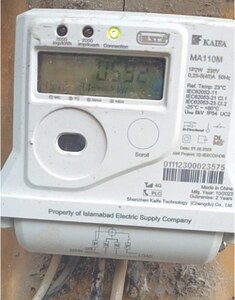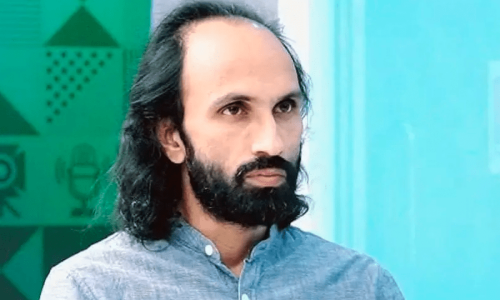
ISLAMABAD: Seeking divorce and custody of four-year old son, it was Robina Khalid’s first appearance in a district court – a shock she was not ready for.
“Everyone was gawking at me. Their eyes were probing me. It was embarrassing,” Robina told Dawn as she appeared in the civil court of Judge Shabana Hameed Mughal in the capital for the dissolution of her five-year old marriage.
She had only heard about “courts” or saw the “proceedings” in the movies – never thought that one day she would have to appear before a court.
“Any respectable woman would never wish to go to court unless she is forced by circumstances.” For her the court’s environment was unpleasant. “It was overcrowded and one cannot stand there properly.”
When her son Majid saw handcuffed criminals at the premises of district courts, he asked questions for which Robina had no answers.
After her first visit to the court, she demanded “exclusive courts” to deal with the family matters.
But apart from the unfriendly court atmosphere, litigation spread over years in the family cases becomes a source of mental agony for women seeking separation but are dependent on their parents or brothers and sisters.
Facing this predicament, Saba Kamran, a teacher in a private school, now knows reasons delayed litigation.
“Lower judiciary is overburdened. Judges hear several cases in a day and they fix next date of hearing after several weeks.”
But this means adding to the difficulties of women.
For speedy trial, Saba also wants separate courts for deciding family matters.
Her counsel, Advocate Akhtar Mehmood said women face problems in the court because of “uncivilised attitude”, adding that it discourages a woman to approach the court on her own despite a disturbed family life.
“In 70 per cent cases, parents support their daughter in dissolution of marriage cases and accompany them in the court. The remaining 30 per cent face a tough time as they have to manage all the court related activities alone.”
He said in some instances, after filing a case against husband, women are harassed and threatened. “In such a situation, police also declare it a family matter as an excuse and do not take it seriously.”
Supporting her client’s view for separate courts for family matters, he suggested three courts comprising two female and one male judge for exclusively dealing with family cases of Islamabad.
According to statistics, in July there were 11,119 regular suits with ten civil judges of Islamabad’s district courts. During the month, 744 new cases were filed while 932 were disposed of.
Out of the ten, seven judges disposed of 123 family cases from a total of 1,153 in July.
Under section 5 of West Pakistan Family Courts Act, courts deal with seven types of family matters; dissolution of marriage, dower (including dowry articles) maintenance, restitution of conjugal rights, custody of children, guardianship, and jactitation of marriage.
The act gives six months to courts to dispose of a family case but currently it takes several years to decide. The National Judicial Policy (NJP) has also set three to six months to decide these cases. “The civil appeals arising out of family cases, custody of minors, guardianship cases, succession and insolvency cases, if competent, shall be decided within 30 days and for any delay, reasons should be furnished to the high court,” according to the policy.
But as the family cases drag on for years, some parties are forced to withdraw petitions and opt for out of court settlements.
Shazia Saleem, an advocate and vice president Islamabad High Court Bar Association, said when the cases linger on for years, the families on both sides suffer. She said from the association platform, “we have asked the authorities to increase the judges’ strength but nothing has been done.”
She said the NJP wants the courts to decide family cases with three to six months but added that cases are being decided in a year or more time with a view to provide “opportunities for reconciliation”.
She agreed that the current environment in courts was not suitable for women and children and family courts must be established at separate locations.
Mustafa Nawaz Khokhar, adviser to the prime minister on human rights, said ideally family courts should be separated from other courts. “But it requires extra funding.”He said district courts are functioning at a temporary location. “We need more buildings for Islamabad judiciary to overcome problems faced by litigants.”










































